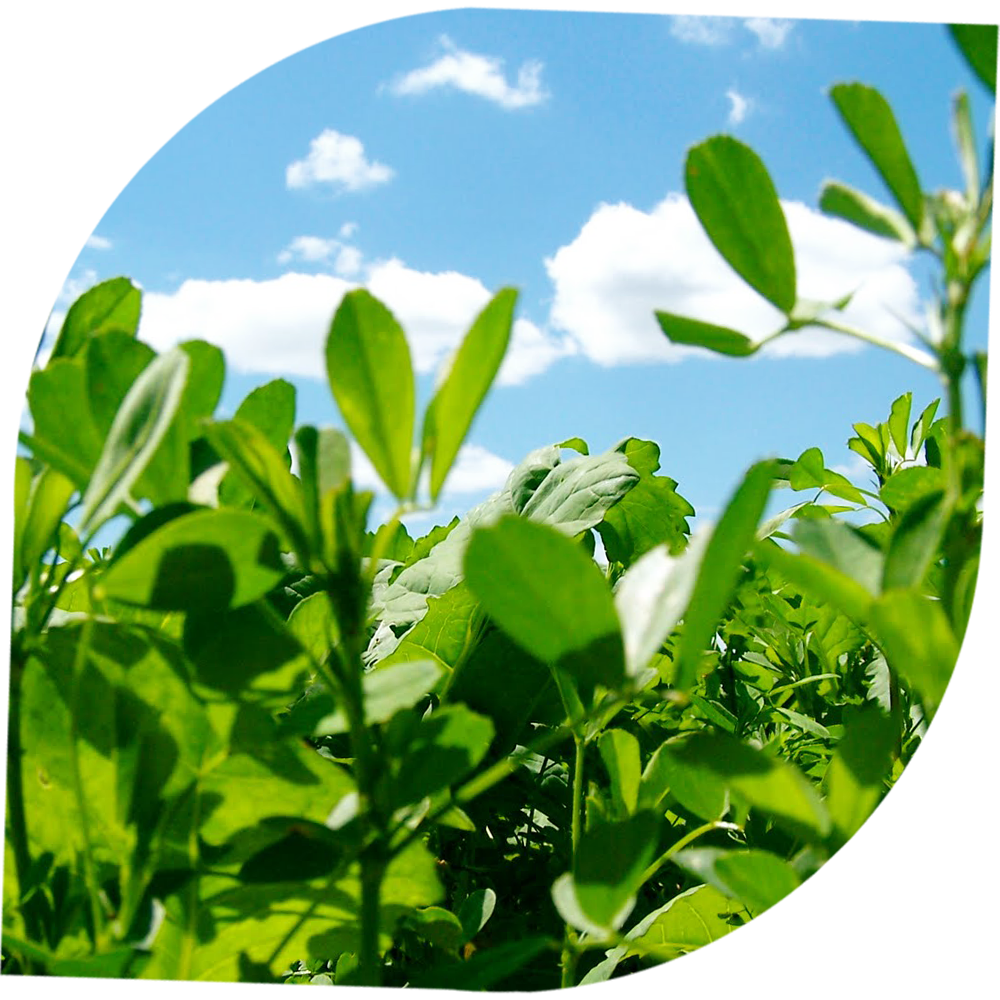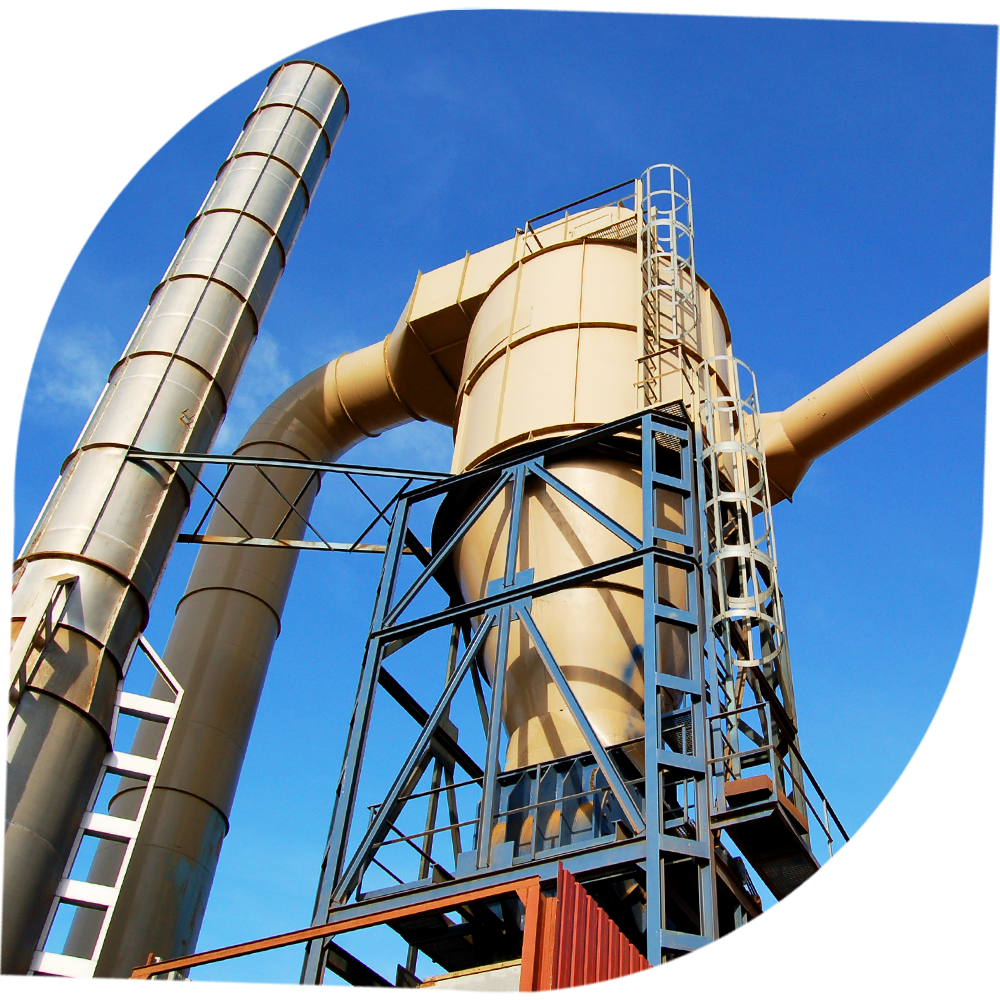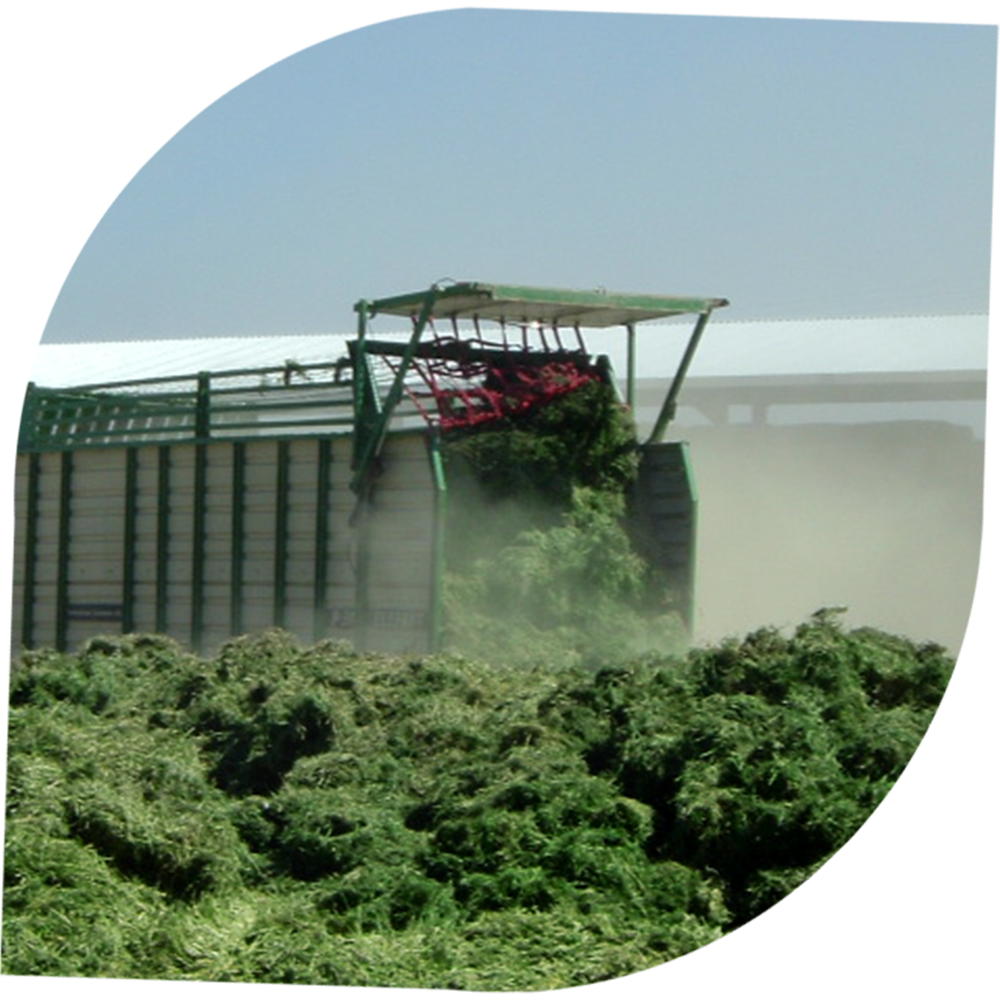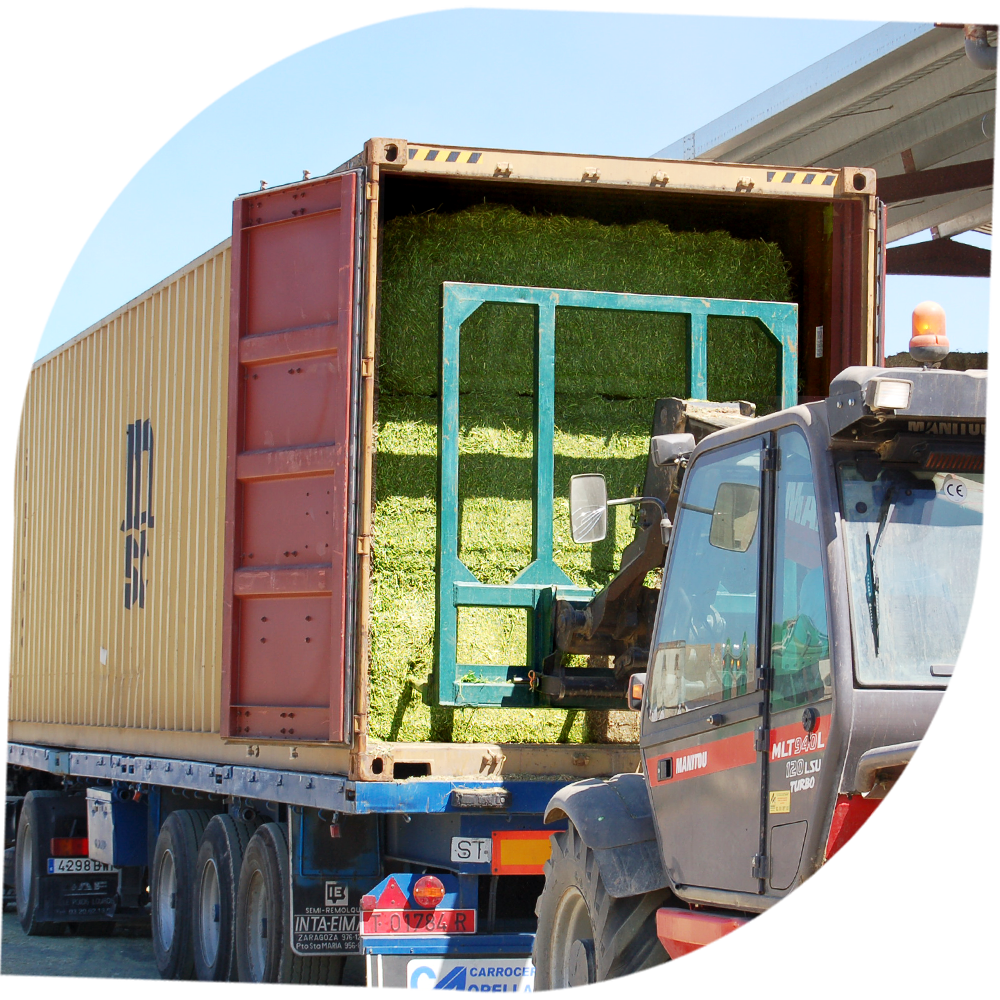Quality Control
Quality control for dehydrated alfalfa involves assessing various aspects to ensure the product meets the desired standards. From ALFEED has implemented a comprehensive quality control program that includes regular testing and inspections at various stages of production that helps ensure dehydrated forage consistently meets high quality standards.
Regular monitoring and documentation of these parameters are essential for maintaining product quality and safety.
Quality

In the field
ALFEED’s quality control starts in the field. We offer our farmers the source of seeds of the highest quality and agrochemicals (pesticides and fertilizers) which always comply with biosafety measures and the regulatory and sanitary guarantees. Regular controls are carried out to check them before the forage enters in our factories.
In the factory
When the raw material arrives at our facilities, we classify it according to different parameters such as moisture content, color, aroma, percentage of foreign material (other grasses), protein, etc. With this classification, we process the forage to obtain a homogeneous product.
Once the product has been dehydrated, ALFEED implements an exhaustive control of quality. We check the:
- Moisture content
- Nutritional content
- Visual aspect
With this monitoring we are able to make a homogeneous classification by quality: superior, extra, first or second.


In the Warehouse
ALFEED has incorporated a culture of continuous improvement to the operative efficiency and excellence. Regular monitoring is carried out in our storages to check:
- Microbial contamination: Testing for microbial contaminants, such as bacteria, mold, and yeast, to ensure that the product is free from harmful microorganisms that could affect its safety and stability.
- Warehouse integrity: To ensure the dehydrated alfalfa is protected from external elements, such as moisture and light, which could degrade its quality over time.
Before Loading
Ensure that the dehydrated alfalfa meets all regulatory standards and requirements for the intended market. This may include adherence to food safety regulations and labeling requirements.

Traceability
The Traceability understood as the procedure of instructions of work that define the internal management of the products, as well as the necessary register from the reception of the raw materials, up to the expedition of the final product, in order to be able to reconstruct the historical of our products and to know at any time, the product more immediate destination or origin.
Internal traceability, obtain the trace that a product is leaving in all the internal processes ofa company, with its manipulations, composition, used machinery, shift, temperature, lot, ect., that is to say, al the indications that they can do or can make change the product for the final consumer.
External traceability, is to externalize the information of the internal traxe and some indications to add if necessary, as a break in the package, a change in the process of transport, etc.

